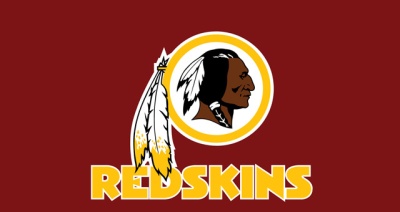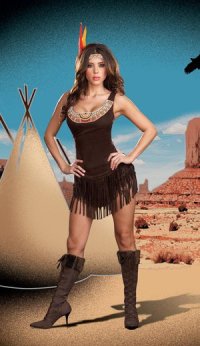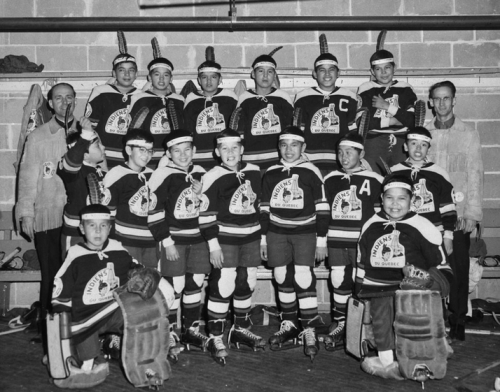
I must have been around eight years old – hyperactive, I’ve been told, but timid nonetheless. I sat quietly, anxious about my impending initiation into the local scouts club. In reality, my anxiety was fed by a sense of misgiving that I harboured about being around strangers; it should have dissipated as I habituated myself to my new environment and to the people who could have become friends. Unfortunately, my anxiety just escalated as the scoutmaster led us into a room where our initiation would take place – something was amiss. There, directly in front of me, was a tipi and a White man dressed as a stereotypical Hollywood Indian. The initiation, I was told, was an ancient Indian ritual. My heart sunk as I secretly relinquished any hopes of joining the club. I felt humiliated. But worse, I felt invisible. For the next hour or so, I shamefully acquiesced to the so-called ritual, anxiously anticipating my father’s return so he could just drive me home.
To be fair, this wasn’t my first experience of the sort, but one doesn’t usually get used to this kind of ignorant behaviour. Touting stereotypes about indigenous peoples as a form of honour is insulting to an adult and demoralizing to a child. To both, it is dehumanizing. What’s worst, however, is when this constant bombardment of stereotypes that all indigenous Americans must endure becomes accepted and perpetuated by the victims themselves. Regrettably, as a fledging teenager, I myself proudly acquired and wore a Redskins jersey. Tired of being invisible and humiliated, I brazenly displayed my ethnicity on my chest for all to see. Of course, I had yet to understand that I was now personally responsible for humiliating myself. But as Steve Biko once pointed out, “The most potent weapon of the oppressor is the mind of the oppressed.”
Thankfully, that phase would not last. As I scoured and pondered anti-colonial literature, I came to understand the link between these imposed stereotypes and our condition as colonized peoples. I would learn to disassociate myself from prevailing and oppressive mentalities and reconciled myself with the fact that my oft-worn Redskins jersey would best be transferred to the trash bin. As I assumed this mental transformation, I would criticize others for wearing what they thought were innocent team logos, reminding them that they are, in fact, emblems of our oppression.
For years, what should have been a loud concordant opinion about these racial stereotypes was nothing but a murmur. For although most indigenous children can tell you that they are often humiliated and made to feel inferior by these stereotypes, we often become discordant or even complacent as adults. Gradually, however, the murmur has intensified to the point where our voices are now loud and clear, despite the opposition we face. We will eventually prevail, but there is a danger in being contented with only rectifying one stereotype versus another. While changing the Redskins’ name and logo will definitely be a milestone, it should not be viewed as the ultimate goal.

The Pocahottie, a yearly example of the hyper-sexualization of indigenous women. The manufacturer provided this description: “Sexy tribal hottie is ready for a good poking” & “This Indian will teach you all the fundaments and challenges that poking can bring.”
In other words, it should never have been simply about a word, a name, an article of clothing, or a caricature. Treating a symptom is not a guarantee that one is healed from a disease. And let there be no doubt about it, there is in fact a disease. It is a mental disorder that causes people, usually of colonial extraction, to endorse an artificial worldview of ethnic homogeneity and superiority. The cognitive dissonance caused by the actual existence of indigenous peoples in turn causes them to be insensitive or disparaging towards any who dare remind them of their colonial fiction. There is a technical term for this disorder – racism. And as long as this disease continues to infect the minds of millions, our objections will continue to fall on deaf ears.
Case in point, Walmart apologetically removed its Fat Girl costumes from its shelves this Hallowe’en, but the erotic Pocahottie costumes remained. How these hyper-sexualized outfits could be deemed appropriate in a world where indigenous women are disproportionately the victims of sexual abuse, kidnappings, and murder, one has to wonder. But as with our objections with sports teams ridiculing our people with their names and mascots, the Pocahottie costumes remain largely because most White people have decided that they themselves are not offended by the costumes. In other words, our objections do not matter, because we do not matter to them. Our women will therefore continue being sexual casualties because they continue to be viewed by the dominant culture as nymphomaniacal objects.
But we must persevere. We must continue to voice our all too human concerns in a world that continues to dehumanize us, a world that has largely relegated us to the realm of mythology where elves, fairies, ghosts, and goblins reside. In a world where the twisted mind of the oppressor has reimagined its victims as mascots that cheer him on, we must persevere. Eventually, the world will have to stop and take notice. The disease must eventually be recognized and treated. Only then will they recognize that we are not mascots, but men; not Pocahotties, but women; and not Redskins, but human.


